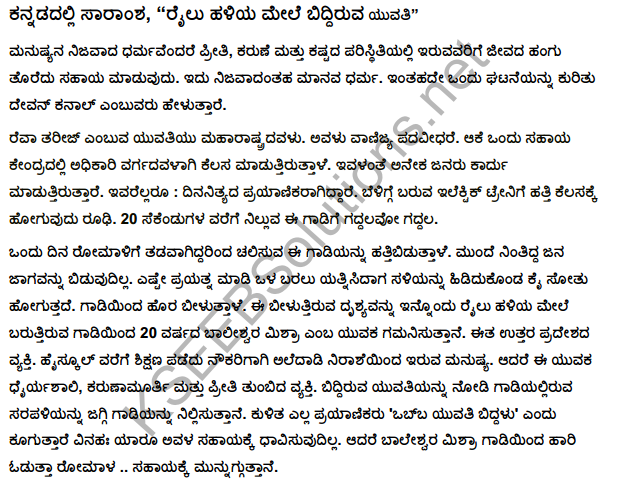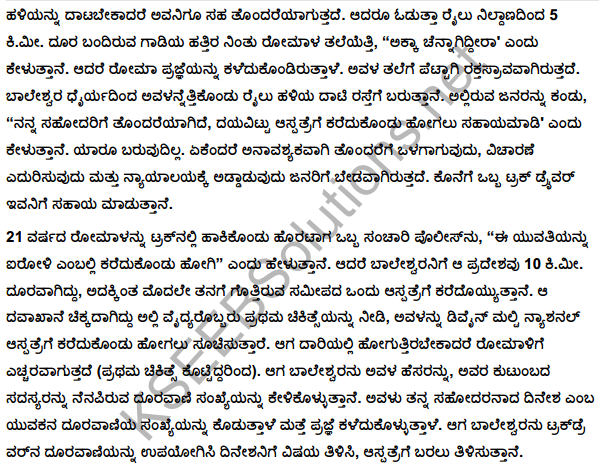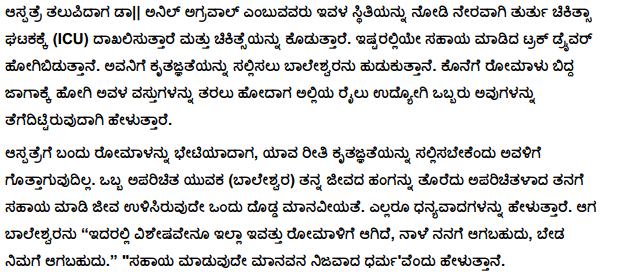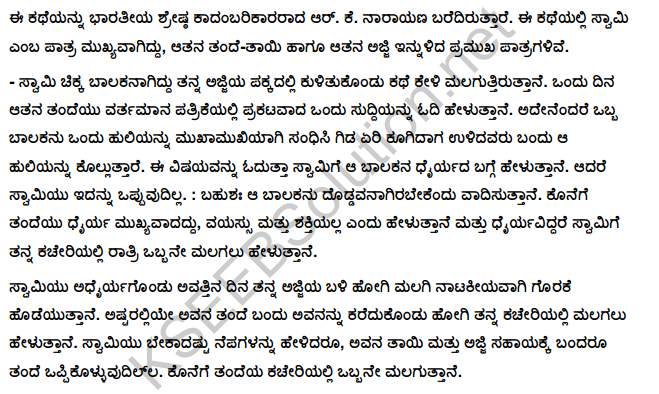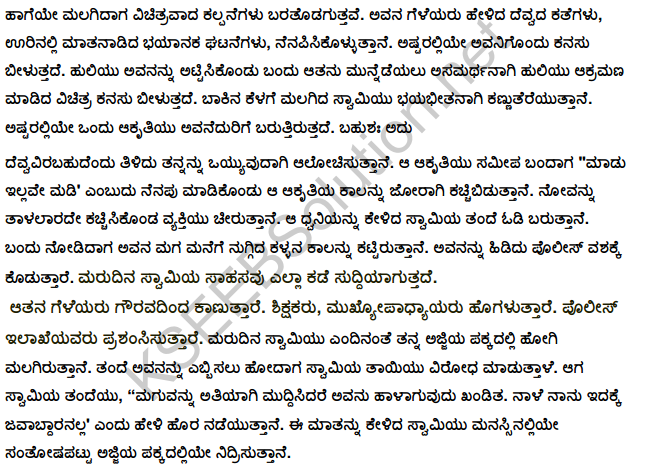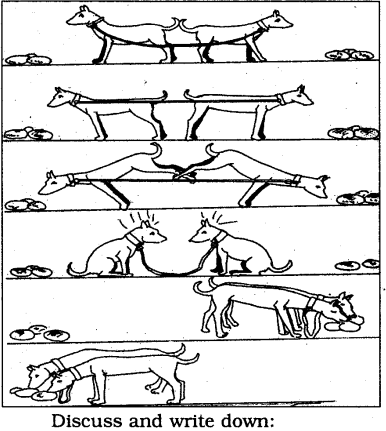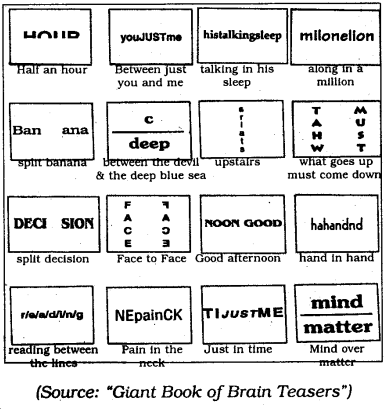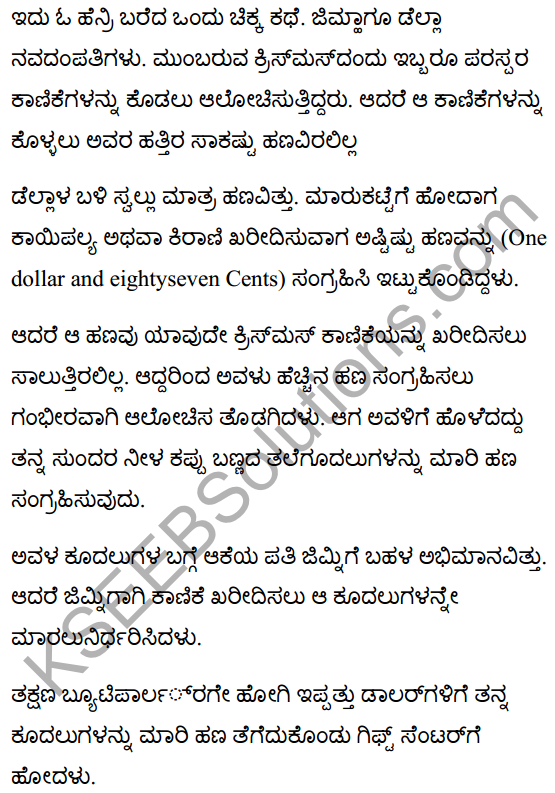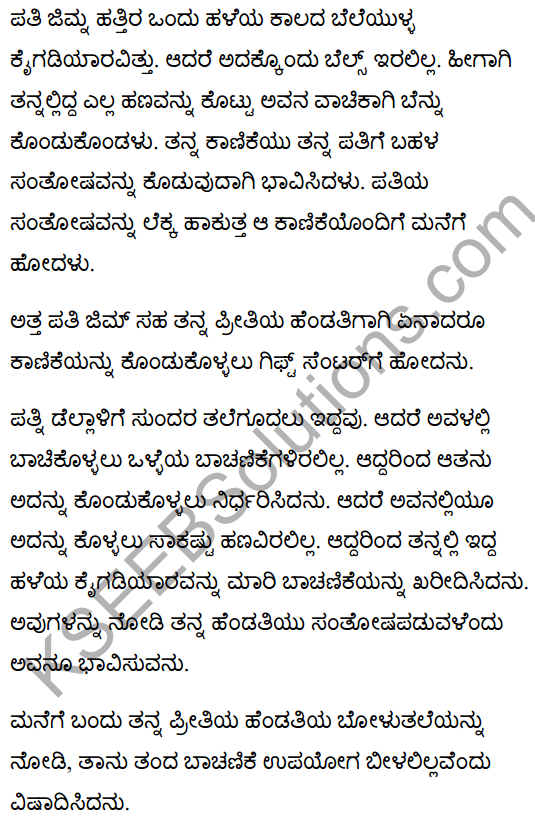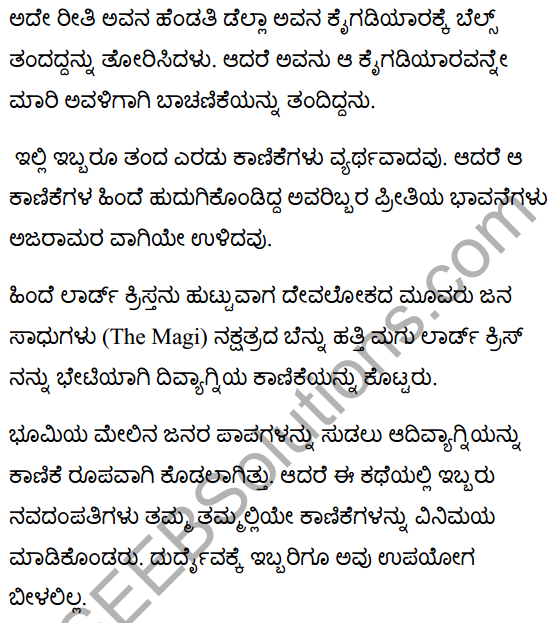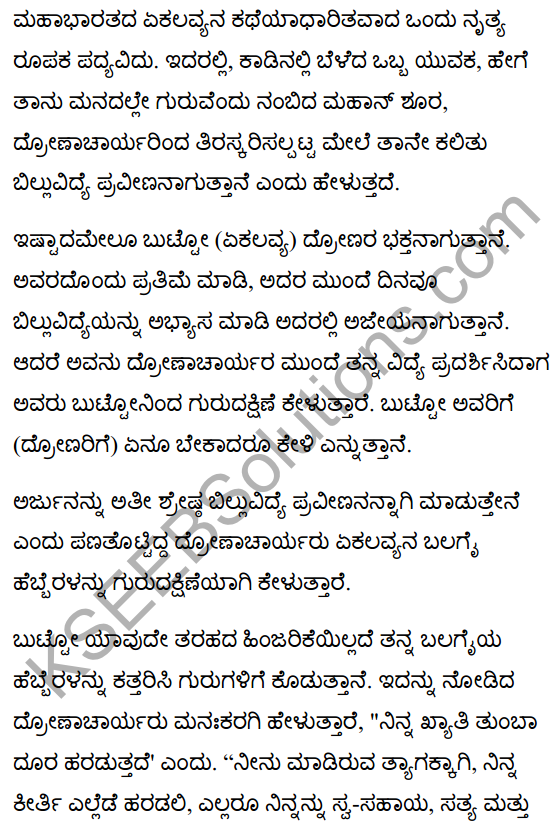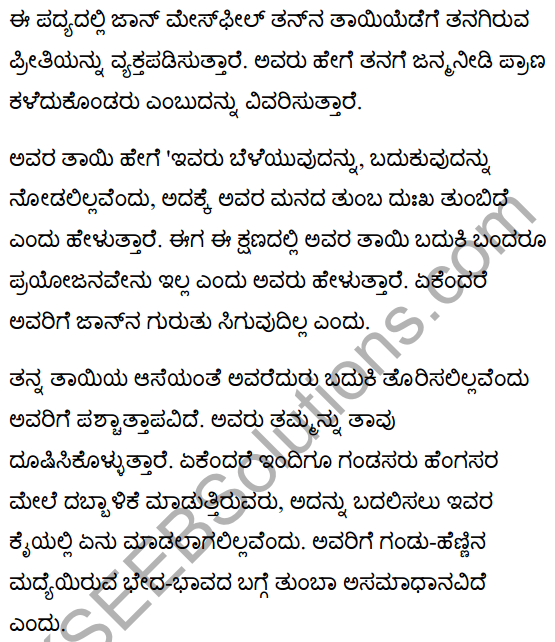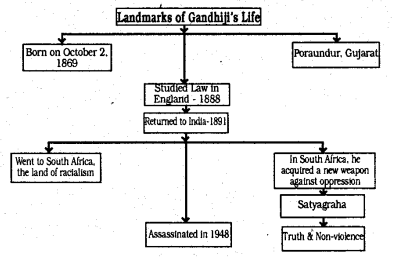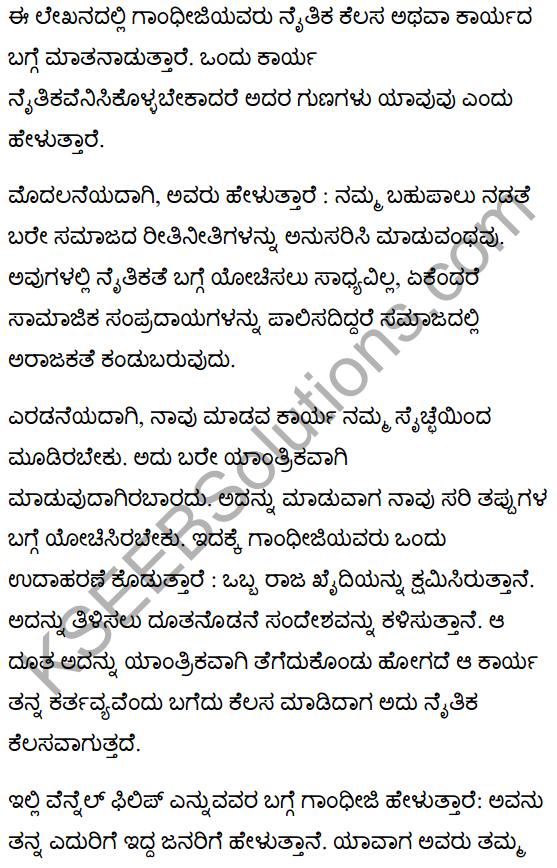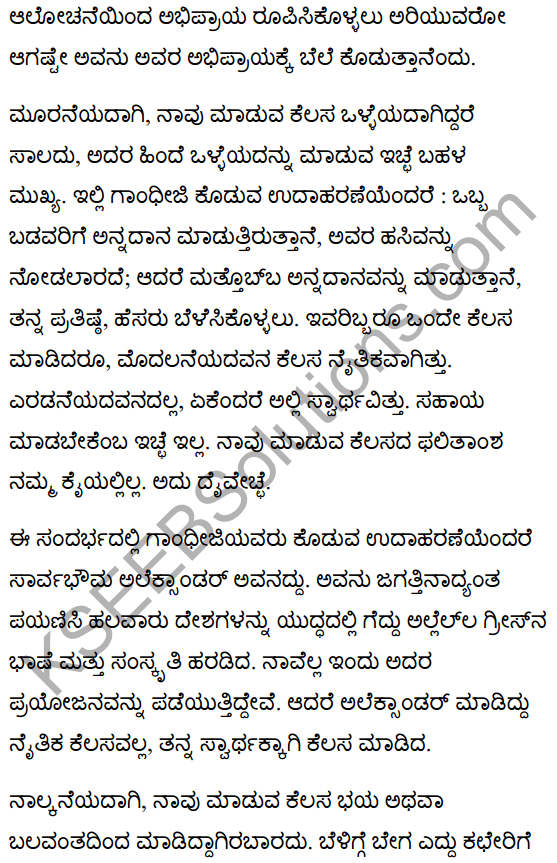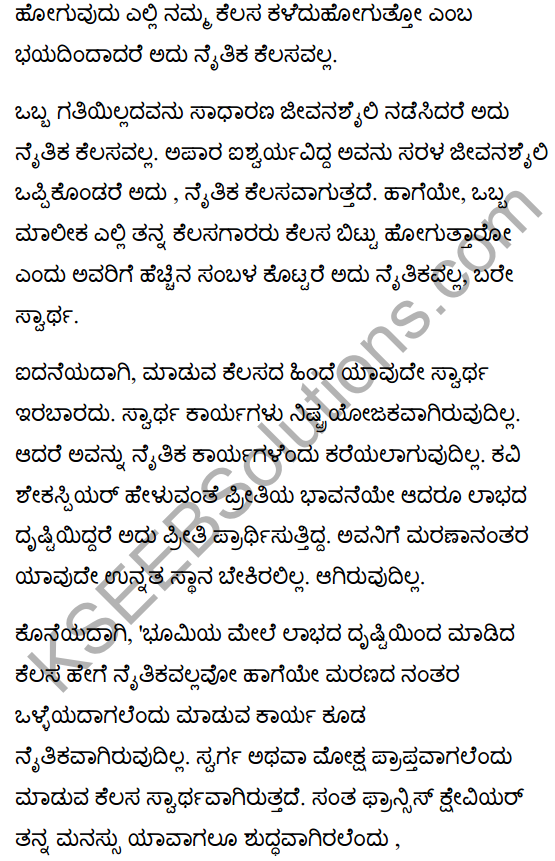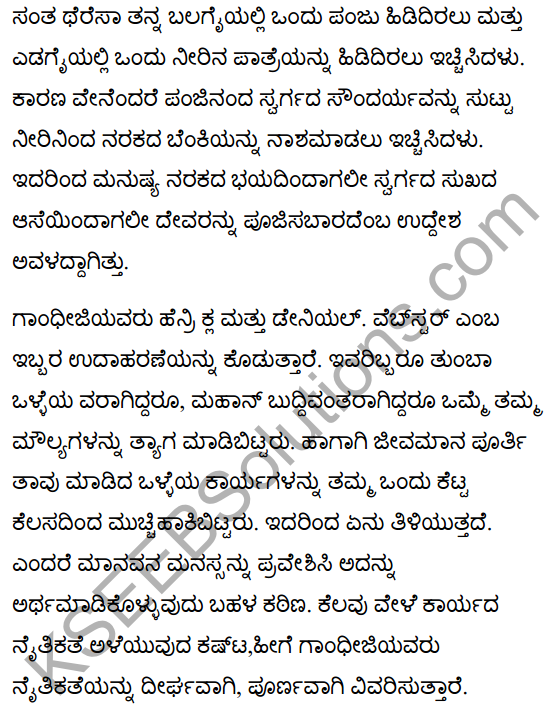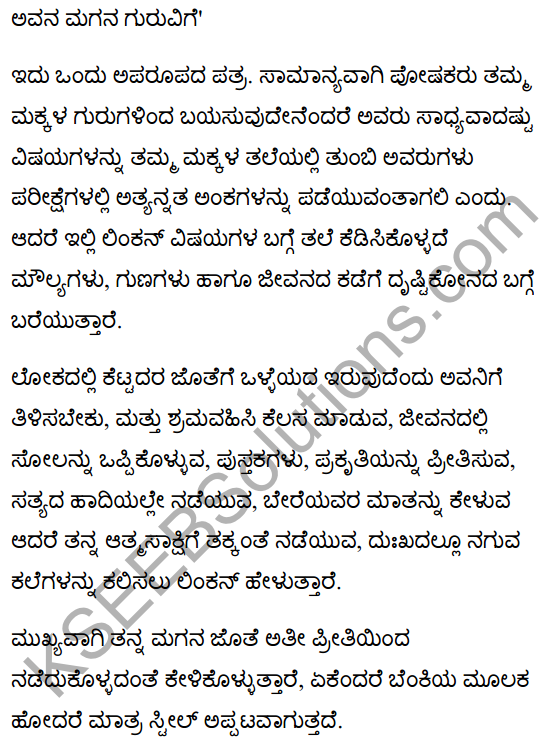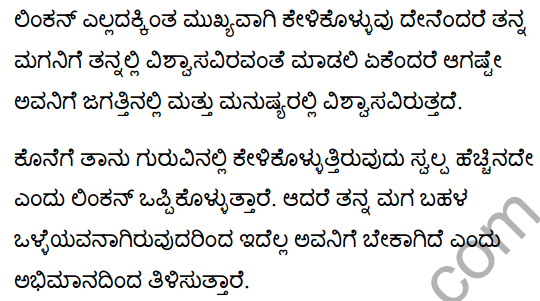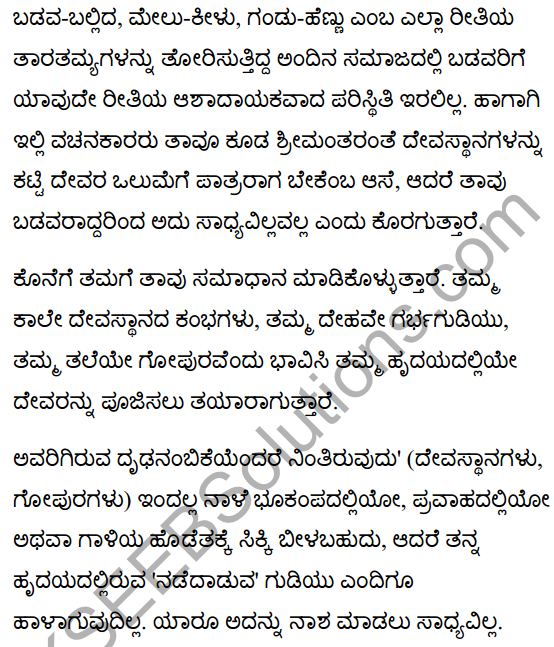10th English Gentleman of Rio en Medio Lesson Summary in English and Kannada
Gentleman of Rio en Medio Lesson Summary in English
Don Anselmo lived up in Rio en Medio, where his people had been for hundred of years. He continued the profession of his forefathers that is he tilled the land his forefathers tilled. He had a small house but his orchard was gnarled and beautiful.
Don Anselmo was passionate about his land and the children of Rio-en Medio. He has agreed to sell his house and land in New Mexico to some Americans who wanted to live there. So Don Anselmo came to the office. Then the narrator informed him that he had more land and should get more money. But Don Anselmo signed the sale deed after the negotiation for 12 hundred dollars. So the narrator offered him more money than what had been agreed upon, but Don Anselmo felt offended when he was offered more money. So’ he refused the extra money and settled for the original amount.
![]()
He told, ‘Americans are good people and that is why I have agreed to sell to them”. By saying this he took the stick and walked out with the boy behind him. Later when the American owners have taken residence in the house, they are upset by the village children who continue to run on to the land to play in the orchard. The owners tell the old man to stop the children from doing so in order that the owners might enjoy peaceful living. But the old man Don Anselmo stood up and told that the Americans are good people and good neighbours.
So he has sold his property except the trees in the orchard. He says that although the land is his, the trees belong to the people of the village, mostly his relatives for whom the trees are planted. The trees belong to the children of the village. Every person owns a tree in that orchard. He told them that for this reason he didn’t sell trees because they didn’t belong to him alone. The Americans faced with his irrefutable logic, buy the trees from their rightful owners, the descendants of Don Anselmo.
![]()
Gentleman of Rio en Medio Lesson Summary in Kannada
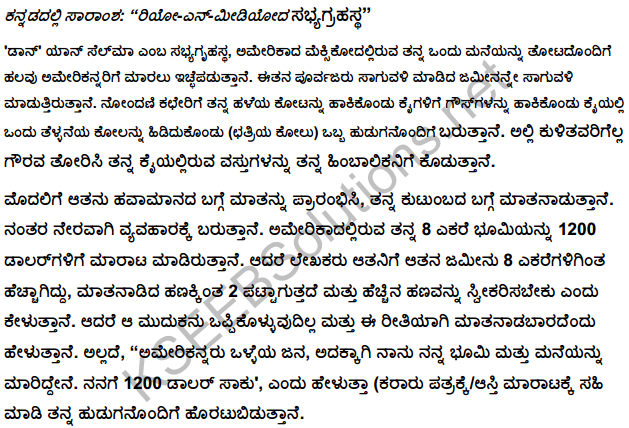
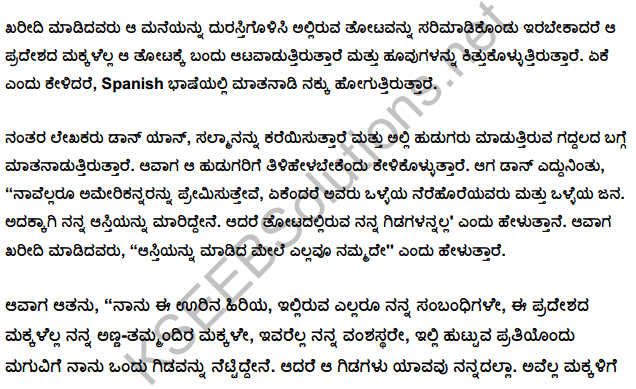

![]()
Gentleman of Rio en Medio Lesson About the Author
Juan A.A. Sedillo (1902-1982) was born in New Mexico. He worked as a Lawyer and held public office. He wrote about Mexico and South Western United States. The following story is based on an actual legal case. Really One’s nativity is not of his own choosing, but whatever it may be, it is entitled to respect; and all nations have honourable place in the world’s family.
![]()
Gentleman of Rio en Medio Lesson Word Meanings
- Rio en Medio : is a place in Santa Fe County, New Mexico, United States
- negotiation : official discussion
- wretched : unpleasant
- quaint : unusual and attractive especially in an old fashioned way
- creek : a small narrow stream or river – de&d toort
- orchard : a piece of land in which fruit trees are grown
- gnarled : (a branch of a tree) with twisted hard lumps
- Prince Alberts : long, double- breasted coat
- gazelle : type of small deer which has large beautiful eyes
- Chaplin : Charlie Chaplin (1889-1977), silent film comedian
- Janitor : Someone whose job is to look after a school or a large building
- Senator catron : Thomas Benton Catron, a senator from New Mexico, 1912-1917
- Don : Spanish title of respect much like “sir” in English
- buena gente : good people
- ragged : torn
- deed : agreement
- abode : home
- prune : to cut off some branches of a tree to make it grow better
- blossoms : flowers on the tree
- preliminary : done or said first to prepare for something
- broach : raise the topic
- ranch : a very large far
- descendants : a group of people related to family that existed long ago
- Senor : a word of respect like ‘mister’ in English
- Sobrinos and nietos : Spanish for “nieces and nephews” and “grand children”
